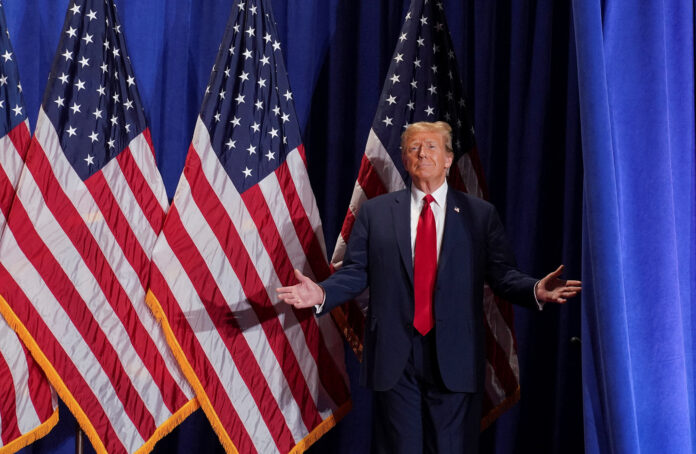The United States Supreme Court unanimously struck down Colorado’s attempt to remove former President Donald Trump from the state’s primary ballot. The state had argued that Trump’s actions surrounding the 2020 election constituted an insurrection, invoking the Constitution’s 14th Amendment as the basis for their decision. However, the Supreme Court, in a unanimous verdict, disagreed, not on the question of insurrection, but on the power of individual states to make such determinations regarding federal candidates.
This landmark ruling emphasizes the limitations of state power in enforcing constitutional prohibitions against federal officeholders and aspirants, specifically pointing out that the responsibility for enforcing the 14th Amendment’s clauses against federal candidates lies with Congress, not the states. The Supreme Court’s decision underscores a significant constitutional boundary, stating, “States may disqualify persons holding or attempting to hold state office. But States have no power under the Constitution to enforce Section 3 concerning federal offices, especially the Presidency.”
The implications of this ruling extend beyond the immediate case, potentially impacting similar attempts to disqualify Trump from appearing on ballots in other states, such as Maine and Illinois, which had also moved to ban him based on allegations of engaging in insurrection. Both of these cases are currently paused, pending appeals by Trump’s legal team, but the Supreme Court’s clear stance may influence the outcome of these appeals.
This decision comes after the court heard arguments on the matter, revealing the complexities and tensions surrounding the interpretation of the Constitution’s 14th Amendment in the context of modern political disputes. The unanimous nature of the ruling sends a strong message about the judiciary’s view on the scope of state powers in federal electoral matters, potentially setting a precedent for how similar cases might be handled in the future.
The Supreme Court’s ruling not only impacts the immediate legal landscape but also opens up broader discussions about the balance of power between state and federal authorities in determining the eligibility of candidates for federal office. As the country continues to navigate the aftermath of the 2020 election and the controversies surrounding it, this decision marks a critical moment in the ongoing debate over the boundaries of constitutional law and electoral integrity.



